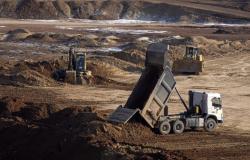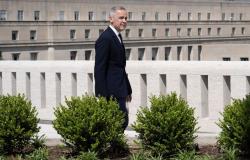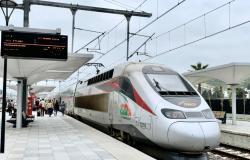While Syria is trying to turn the page on the regime of Bashar al-Assad, more than a decade after the start of the civil war, the country opens slowly to the exhumation of a past that many had been forced to silence.
Among those who claim to speak: the relatives of the tens of thousands of people who disappeared in Syria, victims of the state repression of Al-Assad or the armed violence which followed the burst, in 2011, of the Syrian Revolution.
For the first time since its creation, two years ago, the independent United Nations institution responsible for shedding light on the fate of the missing was able to access Syrian territory.
At the head of this unprecedented mission, Karla Quintana describes a freezing reality: “This is a problem of considerable scale. […] Everyone knows someone who has disappeared ”.
Fragile hope
Until December 2024, the Mexican lawyer and her team were forced to work remotely, mainly with the Syrian diaspora abroad.
The fall of the al-Assad regime on December 8, marked a turning point. “A new window of hope and opportunities opens for families, for Syrian society and for ourselves,” she says. The institution she directs now has access to the territory and collaborates with the Syrian interim authorities, civil society and the families of the victims. The objective: to meet a national trauma, inherited from half a century of dictatorship and almost fifteen years of conflict.
The testimonies collected by on -site investigators form a dense fabric of pain, often buried, sometimes unspeakable. “We talked to people who had never talked to anyone about their loved ones”underlines the human rights expert. Stories carried mainly by women, often the first to start the quest for truth.
-The places of the torture
Among the emblematic places recently visited by his team: Darayya, Tadamon and Sednaya. Names that have become synonymous with arbitrary detention, torture and forced disappearance. “These are places where so many people have been tortured, murdered and, of course, where many people have disappeared,” deplores Karla Quintana.
Buildings, sometimes in ruins, carry the stigma of decades of state violence. But it is in the streets, taxis, restaurants, that investigators measure the depth of the tragedy: everywhere, anonymous coming to tell a brother, a girl, a disappeared father.
Mobilisation collective
Faced with a task which it describes as “titanic”, the head of the independent institution pleads for a wide mobilization. “When looking for missing, information is essential. We must have this information, process it, share it and link it to be able to launch research ”she explains.
The support of the international community is also required, beyond funding, in technology, scientific expertise and political will.
But the manager insists: this mission must be carried by the Syrians themselves. “It is not only up to the authorities, but also to civil society and Syrian families to seek their loved ones”, she said.
Restore the truth, without distinction
The approach of the independent institution of the UN is intended to be inclusive and not partisan. “We are looking for all disappeared, whatever their nationality, their religion, the reason for their disappearance or their abduction”, explains the expert. A principle of neutrality, in a country still fractured, but essential to restore basic confidence.
Through this initiative, it is a still unfinished page of Syrian history that may begin to write. A page where the forgotten names of the missing will find their place, and where the living can finally mourn.








